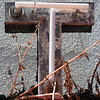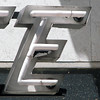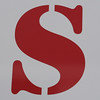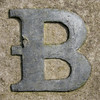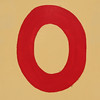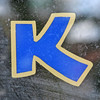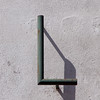Friday, June 29, 2007
Audio Clip of My Radio Interview
An audio clip from my radio interview is now posted on my website. Click here to listen to Jennifer LoveGrove and me discussing such topics as book blogs, the anxiety of influence, and the challenges involved in shifting from writing short stories to writing novels.
Elaine Dundy, Angry Young Men, and Bad Girls
 I noted the other day that I'd received the copy of Elaine Dundy’s The Dud Avocado that I ordered from NYRB Classics. Before that though, while I eagerly awaited its arrival, I was surprised and delighted to find another Dundy title, The Old Man and Me, at Nicholas Hoare Books. Delighted because it too garnered an enthusiastic endorsement from Our Girl in Chicago at About Last Night, and I've come to regard her as a reader of impeccable taste. Surprised because I thought it was out of print. On the latter point, my information was evidently out of date, for there it was on the shelf, a lovely Virago edition published in 2005.
I noted the other day that I'd received the copy of Elaine Dundy’s The Dud Avocado that I ordered from NYRB Classics. Before that though, while I eagerly awaited its arrival, I was surprised and delighted to find another Dundy title, The Old Man and Me, at Nicholas Hoare Books. Delighted because it too garnered an enthusiastic endorsement from Our Girl in Chicago at About Last Night, and I've come to regard her as a reader of impeccable taste. Surprised because I thought it was out of print. On the latter point, my information was evidently out of date, for there it was on the shelf, a lovely Virago edition published in 2005.I cracked it open on the streetcar ride home, beginning with the introduction penned by Dundy herself. Of the motivation behind the book, she writes:
My specific aim in writing this novel was to present an anti-heroine in response to all the anti-heroes so popular of the day, beginning with Kingsley Amis's Jim Dixon in Lucky Jim, John Osborne's Jimmy Porter in Look Back in Anger and all the anti-heroes who followed in their wake. Loosely bound together as Angry Young Men, they hit out at everything phony, pompous, prudish, and pretentious. Their anger was exhilarating. To their delight (and to his later embarrassment), Somerset Maugham called them ‘scum’. Creating the female counterpart I knew would be tricky, as in those days when relationships between men and women were at an all-time low, females were depicted as passive and put upon. (Then came the '70s—Gloria Steinem and her Ms. magazine, Germaine Greer and her Female Eunuch, Carmen Callil and her all-female publishing house Virago. And nothing was ever the same again.) Back in the '60s I was aware that my anti-heroine might scare people off. But I did it anyway. And it was fun. After all, Cyril Connelly had advised me about my private life: 'Make up your mind, you can either be a monster or a doormat.' I opted for the former.
Some of you may remember that not long ago I was revelling in the reading of Humphrey Carpenter's group biography of those same angry young men. While I very much enjoyed being in their company for the duration of the book, I couldn’t help but register how thoroughly masculine their world was. So, needless to say, I am most intrigued at the prospect of making the acquaintance of Dundy’s female counterpart to their fictional creations.
This juxtaposition brings a third book into the fray: Ian McEwan's On Chesil Beach which I read at the same time as Carpenter's The Angry Young Men. Dundy's The Old Man and Me was first published in 1964 while On Chesil Beach was released just this spring. But both books are set in 1962 England, and I'm fascinated at the prospect of considering Dundy's unrepentant bad girl heroine in conjunction with the peculiarly innocent couple at the centre of On Chesil Beach. Not that I'm suggesting that one book's depiction of that time and place is bound to be somehow more authentic than the other. Obviously there is plenty of room for diverse experiences and viewpoints in any given time and place. Nevertheless, I find it very interesting to have these books come into contact in my consciousness in this way.
It's one of those exhilarating occasions when books that I've read simultaneously or in close proximity to one another seem poised to enter into a conversation, and I look forward to eavesdropping on what they have to say to one another.
Monday, June 25, 2007
On the Radio
I’m going to be on the radio tomorrow (Tuesday, June 26th) talking about all things literary, including my new book of short stories, with Jennifer LoveGrove. It's a radio show on CKLN called “In Other Words.” Tomorrow will be Jennifer’s inaugural stint as host of the show and I’m honoured that she’s asked me to be her first guest.
You can listen to the show live online by tuning in at 2 pm CDT. Click here to do so.
You can listen to the show live online by tuning in at 2 pm CDT. Click here to do so.
Goodies from NYRB Classics



I've confessed before that I have trouble resisting any of the titles in the New York Review of Books Classics collection. Several of the Toronto bookstores that I frequent carry them, so I can usually get my pick of them straight off the shelf. But there were a few that I particularly coveted that I hadn't yet come across which prompted me to put in a mail order. My NYRB parcel has arrived bearing the books you see pictured above, along with a complete catalogue that makes future mail order extravaganzas a distinct likelihood...
Why these three books?
Wee Gillis by Munro Leaf was a childhood favourite of mine and it is every bit as delightful as I remembered it to be (although admittedly only tangentially related to the Scottish life it purports to depict). I had a very vivid memory of the Robert Lawson illustration of Wee Gillis manfully shovelling down a large bowl of oatmeal each morning which proved to be accurate to the finest detail. It's interesting to contemplate what snippets of childhood reading stick with one and why. I wonder if I can attribute my lifelong fondness for oatmeal to my early encounters with this book?
I have been keen to read The Dud Avocado by Elaine Dundy since noting several positive mentions of it by both Terry Teachout and Our Girl in Chicago at About Last Night. The news that a NYRB edition of it had just been released containing an introduction penned by Teachout called for immediate acquisition. I'm sure that the book will wend its way into Toronto bookstores eventually, but I was too impatient to wait. Paris, Pernod, and promiscuity in the 1950s--how could I go wrong with this one? (Incidentally, I note that NYRB has also recently published one of my all time favourite Paris books: Memoirs of Montparnasse by John Glassco--a gloriously witty and irreverent account of literary Paris in the 1920s. Do yourself a favour and pick up a copy of that one if you haven't already read it.)
Patrick Hamilton is also on my radar thanks to mentions by litbloggers. For example, Isabella at Magnificent Octopus and Ellis at The Sharp Side have been eloquent in singing Hamilton's praises. When I first resolved to read some of Hamilton's work I thought that I would begin with Hangover Square. But since NYRB has opted to publish Slaves of Solitude, it's the first of Hamilton's books to make it into my hands, and it's the book with which I will begin.
I'll keep you posted on how I fare with both Dundy and Hamilton.
Tuesday, June 19, 2007
This Month at the Short Story Discussion Group
The focus of this month's session of the short story discussion group is Isak Dinesen’s "The Blank Page" (1955).
Participants are invited to post their thoughts on the story at A Curious Singularity whenever they feel moved to do so. If you’re not yet a member of the short story discussion group and you would like to join, please e-mail me. Of course, anyone can contribute through the comments sections of the posts without officially joining the group.
I look forward to the discussion of Dinesen's story.
Participants are invited to post their thoughts on the story at A Curious Singularity whenever they feel moved to do so. If you’re not yet a member of the short story discussion group and you would like to join, please e-mail me. Of course, anyone can contribute through the comments sections of the posts without officially joining the group.
I look forward to the discussion of Dinesen's story.
Monday, June 18, 2007
My Author Website
I've been neglecting my blog shamefully of late while working to build myself an author website. But it's mission accomplished now, I think. You'll find the website here. Please let me know what you think of it. I promise that with that done, several new blog posts are on the way...
Wednesday, June 13, 2007
Capsule Review

What the Dead Know by Laura Lippman (2007).
A woman emerges from a highway traffic accident on the edge of Baltimore claiming to be one of two sisters who had disappeared as adolescents from a local shopping mall three decades before. Is she or isn’t she? If so, what happened back then and where has she been since? If not, who is she, and how does she know what she knows?
I’m often impatient when the author of a favourite series takes a break to write a standalone. Not this time. This is Laura Lippman’s best book yet. It is at once a riveting mystery and a powerful meditation on identity, deception, memory, and loss. I recommend it highly.
Saturday, June 09, 2007
Spell with Flickr
Friday, June 08, 2007
Steven Heighton on Literary Fiction
Steven Heighton on literary fiction:
From Steven Heighton, “Writing as Re-enaction” in Eliza Clark, ed., Writer’s Gym: Exercises and Training Tips for Writers (2007).
But in truly literary fiction, the writing is never just functional. Literary fiction uses a number of fascinating techniques—essentially the techniques of poetry, though generally deployed in a more subtle way—so that the writing actually embodies or becomes the thing it’s about, acoustically recreating what it describes, the words in their artful patterns re-enacting the scene, image, or description so that the writing and what’s written about are indissolubly fused. Form and content, welded together.
From Steven Heighton, “Writing as Re-enaction” in Eliza Clark, ed., Writer’s Gym: Exercises and Training Tips for Writers (2007).
Thursday, June 07, 2007
What's Your Favourite Novel?
In his new collection of essays, Reading Life: Books for the Ages, Sven Birkerts identifies Humboldt's Gift by Saul Bellow as his favourite novel. He explains what he means by favourite in the opening paragraph of the chapter that he devotes to discussion of this novel:
I probably shouldn't ask this question, because I'm not sure that I can answer it myself, but here I go anyway. Employing Birkerts' definition of favourite, what's your favourite novel?
I'm tempted to say that Muriel Spark's The Comforters is mine, but I'm not entirely sure if that's true. I must mull over the question a little longer...
Whenever someone asks me to name my favourite novel, I find myself putting on a ridiculous but revealing little performance. I pretend to a natural consternation—after all, who can narrow a lifetime’s evolving preferences down to a single title?—but I use that as a cover for the real calculation, which is whether I have the interest or energy to explain my choice. For in fact I do have a favourite novel—Humboldt’s Gift by Saul Bellow—but I know it to be an eccentric work, one that a number of reputable critics had problems with when it was published, and that many intelligent readers that I know have shaken their heads over. How much easier to cite Under the Volcano, or The Portrait of a Lady, or Ulysses, or To the Lighthouse, all works that I admire without reservation. But the question was favourite novel, which novel I visit most often in my thoughts, know most intimately, down to the structure of its cadences, and which fills me with the greatest covetousness and inspires me to emulation. This is my truest test: when I think of Humboldt’s Gift I immediately want to write.
I probably shouldn't ask this question, because I'm not sure that I can answer it myself, but here I go anyway. Employing Birkerts' definition of favourite, what's your favourite novel?
I'm tempted to say that Muriel Spark's The Comforters is mine, but I'm not entirely sure if that's true. I must mull over the question a little longer...
Recent Acquisitions: The Prairie Edition
 I acquired many new books on my recent travels. There was ample opportunity for book shopping. In Saskatoon, there was the vast book fair attached to the conference that I was attending—book stalls representing a glorious array of publishers, large and small, corporate and indie, Canadian and international, academic and literary. I confess that despite the fact that I was there in my academic capacity, I bought mostly fiction and poetry; however, I did note down the titles of many tantalizing academic tomes for future purchase. In both Saskatoon and Winnipeg, there are branches of McNally Robinson Booksellers, a Western Canadian outfit which manages to blend the best features of the big box stores with the ethos of the indies. There, as always, I stocked up on the prairie titles that are often regrettably absent from Toronto bookstores, as well as whatever else jumped out at me from the shelves. In Winnipeg, there was also a visit to a very good second-hand bookstore called Aqua Books—recommended by my friend Ben who very graciously provided me with a tour of downtown Winnipeg. To my purchases from these various sources, add a generous stack of belated birthday presents from my parents, acquired during their recent trip to Victoria—several Emily Carr titles selected by my mom, and a couple of wonderful old Scottish books that my dad picked up at the gloriously named Haunted Bookshop (Vancouver Island’s Oldest Antiquarian Bookshop)—and imagine how heavy my suitcase was on the return journey…
I acquired many new books on my recent travels. There was ample opportunity for book shopping. In Saskatoon, there was the vast book fair attached to the conference that I was attending—book stalls representing a glorious array of publishers, large and small, corporate and indie, Canadian and international, academic and literary. I confess that despite the fact that I was there in my academic capacity, I bought mostly fiction and poetry; however, I did note down the titles of many tantalizing academic tomes for future purchase. In both Saskatoon and Winnipeg, there are branches of McNally Robinson Booksellers, a Western Canadian outfit which manages to blend the best features of the big box stores with the ethos of the indies. There, as always, I stocked up on the prairie titles that are often regrettably absent from Toronto bookstores, as well as whatever else jumped out at me from the shelves. In Winnipeg, there was also a visit to a very good second-hand bookstore called Aqua Books—recommended by my friend Ben who very graciously provided me with a tour of downtown Winnipeg. To my purchases from these various sources, add a generous stack of belated birthday presents from my parents, acquired during their recent trip to Victoria—several Emily Carr titles selected by my mom, and a couple of wonderful old Scottish books that my dad picked up at the gloriously named Haunted Bookshop (Vancouver Island’s Oldest Antiquarian Bookshop)—and imagine how heavy my suitcase was on the return journey…Here’s the list:
Fast Forward: New Saskatchewan Poets
edited by Barbara Klar & Paul Wilson;
Rental Van by Clint Burnham;
Two Families: Treaties and Government by Harold Johnson;
The Letters of James Schuyler to Frank O’Hara
edited by William Corbett;
Biography: A Brief History by Nigel Hamilton;
The Winnipeg Connection: Writing Lives at Mid-Century
edited by Birk Sproxton;
Reading Life: Books for the Ages by Sven Birkerts;
The Go-Away Bird and Other Stories by Muriel Spark;
The Literary Essays of Ezra Pound;
The Book of Small by Emily Carr;
Klee Wyck by Emily Carr;
This and That by Emily Carr;
Growing Pains: The Autobiography of Emily Carr;
Letters On Shetland by Peter Jamieson; and,
Traditions of Edinburgh by Robert Chambers.
Several of these books lend themselves to dipping in and out, so I am taking great pleasure in ricocheting between them.
Subscribe to:
Comments (Atom)


